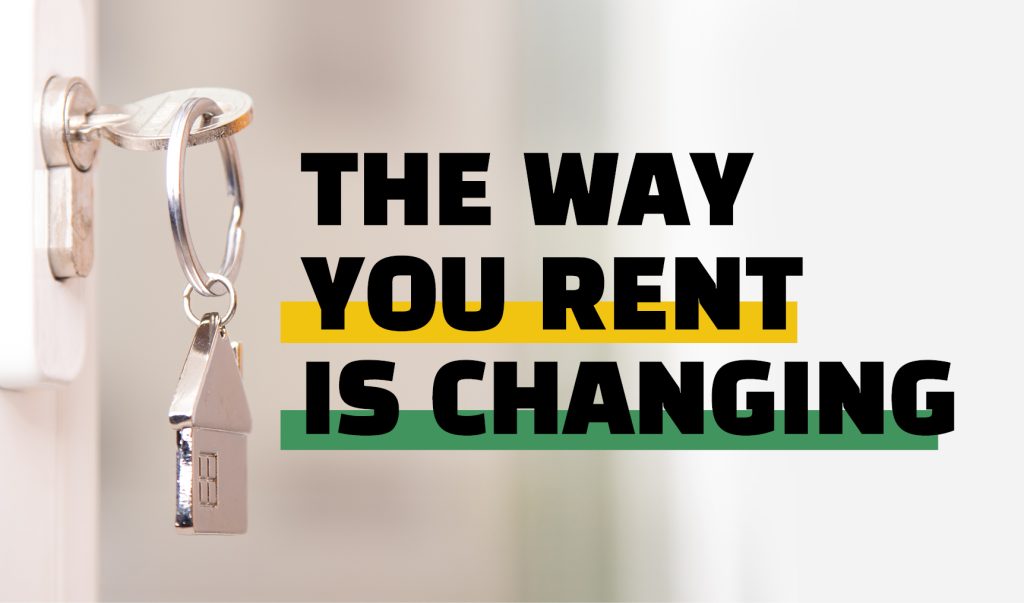The way you rent in Wales is changing.

Renting Homes (Wales) Act – What some of the new terms mean.
The way you rent is changing… for tenants and landlords.
The Renting Homes Act is the biggest change to housing law in Wales for decades.
The Renting Homes Act, which Welsh Government plans to bring into place from the 1st December 2022, will change the way all landlords in Wales rent their properties. It will improve how we rent, manage, and live in rented homes in Wales.
Who is affected by the new law?
All social and private tenants will see some changes:
- in the way their contracts are provided
- in the way their homes are maintained
- to how they communicate with their landlords
All social and private landlords, including those who rent their properties through management companies or agents, will need to:
- comply with the new law
- make the necessary updates to their properties and paperwork
What does the new law mean for you?
Under the new law, tenants will become ‘contract-holders’. Tenancy agreements will be replaced with ‘occupation contracts’.
The new law will make renting easier and provide greater security.
For contract-holders (tenants) this will mean:
- receiving a written contract setting out your rights and responsibilities
- greater protection from eviction
- improved succession rights, these set out who has a right to continue to live in a dwelling, for example after the current tenant dies
- more flexible arrangements for joint contract-holders, making it easier to add or remove others to an occupation contract
We’ve put together this guide to make the technical language used in the legal documents a little clearer.
- Tenants will become Contract-holders. If you live in rented accommodation, you will be known as a contract-holder.
- Community landlord– homes rented out by councils or housing associations – Bron Afon is a community landlord.
- Private landlord– any other landlord who not a community landlord
The types of contract covered by the Act are:
- Occupation contracts– these will replace existing tenancy agreements.
- Secure Contract– for use by community landlords (Bron Afon). In general, community landlords will be required to enter into secure contracts, which offers greater security to the contract holder compared to the standard contract.
- Standard Contract– this is the default contract for the private rented sector but can be used by local authorities and registered social landlords in certain circumstances (e.g. a ‘supported standard contract’ within supported accommodation).
- Joint Contract– contract-holders can be added or removed from occupation contracts without the need to end one contract and start another. This can help support those experiencing domestic abuse by targeting only the abuser for eviction.
- Supported Standard Contract– if you live in supported accommodation for over six months, you become entitled to this contract. Like the standard contract, this allows the contract-holder to change where they are living within the building and gives the landlord the ability to temporarily exclude the contract-holder from the property for up to 48 hours.
Written Statement
Your occupation contract (tenancy agreement) with your landlord will have to be set out in a ‘written statement’. The purpose of the written statement is to confirm the terms of the contract. This written statement must contain all the ‘required contractual terms.’ These are:
- Key Matters–This refers to essential information such as names and the address of the property.
- Fundamental Terms–This covers the most important parts of the contract, such as the landlord’s responsibility for repairs and how a landlord can get possession of a house.
- Supplementary Terms–This look sat the more practical, day-to-day maters., such as notifying the landlord if the property will be left unoccupied for over four weeks.
- Additional Terms– This addresses any other specifically agreed terms, such as keeping pets.
Other important terms:
- Fit for human habitation (FFHH)– This is where a property is in a condition where contract-holders can live safely.
- Changes to the way Abandonment Procurement ‘of property by a contract holder is dealt with’ – Landlords can repossess an abandoned property without needing a court order.
Welsh Government has put together a useful easy read guide for tenants on what changes are going to happen to housing law. Renting Homes: Changes to housing laws (gov.wales)
For more information on the Renting Homes (Wales) Act 2016, visit: https://gov.wales/tenants-housing-law-changing-renting-homes
You can also find help via our Bron Afon Self Help Guides.
